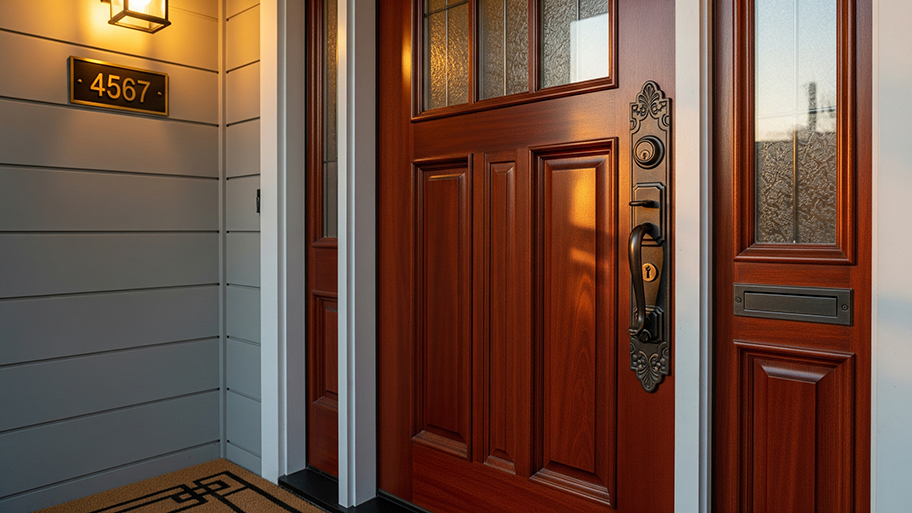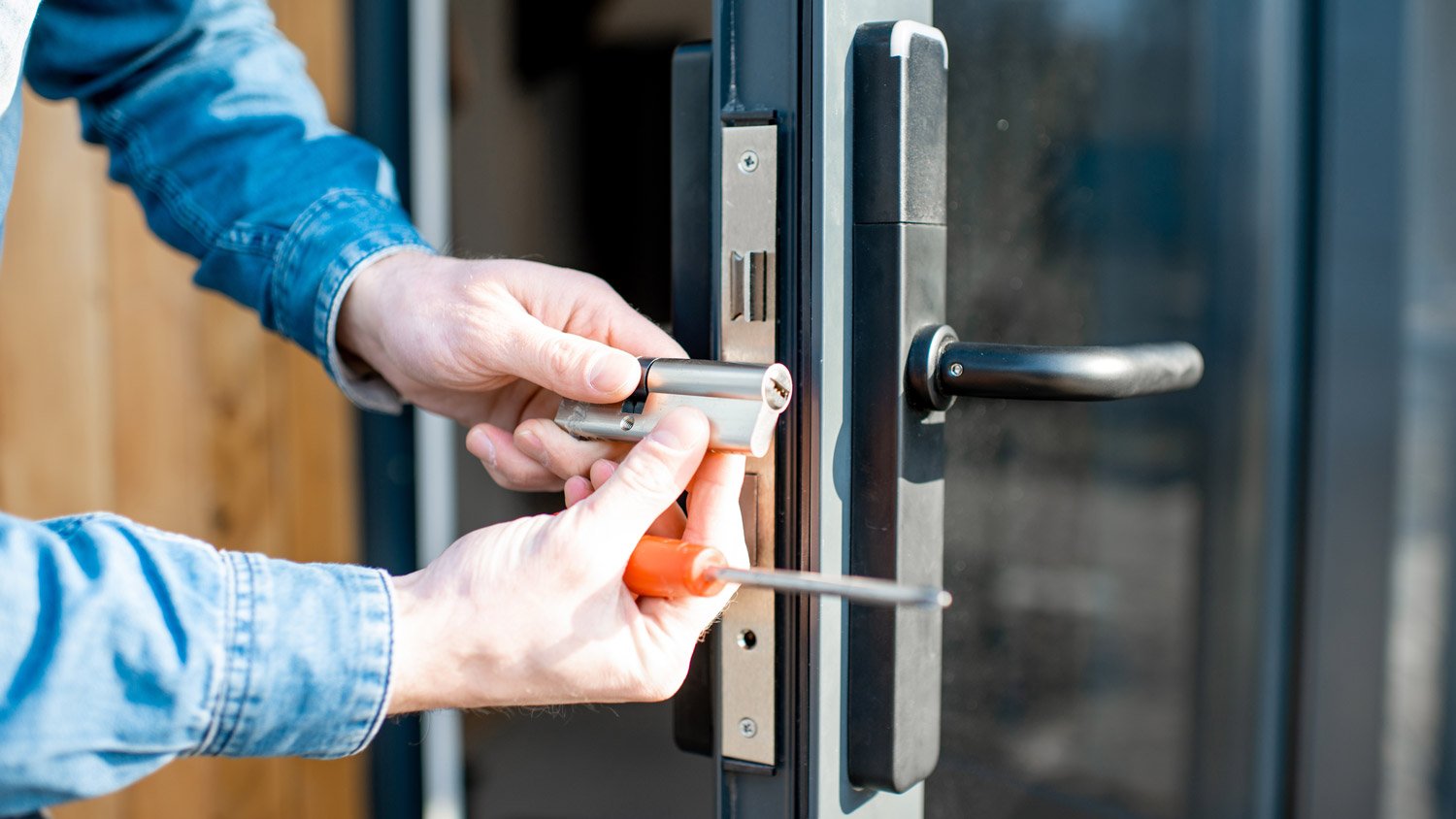
Wondering how much a locksmith costs? Discover locksmith prices, key cost factors, and tips to save on home lockout, rekeying, and installation services.
Changing your new home’s locks and keys gives you peace of mind and adds an extra layer of security


Homeowners buy new locks and keys to increase their house’s security.
For the best outcome, schedule the locksmith appointment weeks in advance.
You have a choice between buying new locks or rekeying existing locks.
Locksmith’s fees range between $50 and $100 per hour.
Let professionals replace the locks, but rekeying is a DIY project.
When you move into a new house, it sometimes takes a little while to feel like home. Installing new locks and keys will help you settle in and complete the perspective switch from “their house” to “our house.” Learn how to work with a locksmith and customize a plan for new locks and keys because, ultimately, the house should be your safe and happy place.
On the fence about changing the locks and keys? Let’s take a look at the main reasons why you should consider making the change.
It’s normal to share house keys with neighbors, pet sitters, and family members. Extra keys can certainly help out in the event of an emergency. However, even if you trust the previous occupants, it’s a little unnerving to wonder about keys to your house in the hands of people you don’t know. Start fresh with a new set of locks and keys to give yourself peace of mind.
Buying a new construction home alleviates a lot of the stress involved with purchasing a previously owned home. But the locks on your new front door were probably installed by the builder and “master keyed,” meaning they likely used the same key for more than one house on the block and shared it with subcontractors during construction. To lessen your worries about unknown contractors having a master key to your home, change the locks and keys yourself.
Even though the homeowner or tenant said that new locks were recently installed, you can’t ensure there aren’t key copies because you didn’t work with the locksmith. For example, the previous occupant may have forgotten about the time they lent the key to the house cleaning crew or handyperson for a quick move-out task.
Changing the locks on a new house provides a sense of security and reassurance because it eliminates any lingering uncertainty about who might still have a key or access to your property. Taking this simple step can help you feel much safer and more at ease in your new space.
The decision to either replace the locks or rekey depends on various factors, including the type of existing locks, the number of locks, your budget, additional upgrades, and your locksmith’s advice. There isn’t a one-size-fits-all solution when it comes to changing locks and keys.
To rekey a home, locksmiths rearrange the pins in the lock's cylinder, making old keys unusable. You’ll get a new set of keys after rekeying. The average cost of rekeying a home is about $75 per hour.
On the other hand, if you want an upgrade for security or modernization reasons, new locks are the way to go. The locksmith will remove all of the locks and install new hardware for each door. You should plan to pay between $50 and $100 per hour for a locksmith to change the locks.
The total price for changing the locks varies for more reasons than the number of locks and new keys needed.
Your local locksmith will provide you with different solutions to suit your home and budget. These options range from a simple one-for-one switch to a complete upgrade to a smart lock system that uses keypads, Bluetooth, Wi-Fi, and biometric capabilities. Keep in mind that the more advanced the lock system, the higher the final price tag.
The lock’s type (mortise, interchangeable core cylinder, or high-security lock), material quality, brand name, and installation complexity affect pricing. For example, aluminum locks cost more, while die-cast locks from non-ferrous materials like zinc are more affordable but less sturdy.
The lockset you choose might require modifications to the existing exterior door or door frame, such as reinforcing your door jam with hinge shields or adding a metal slipcover over an exposed door latch.

While it might seem tempting to change your locks yourself, this is a task best left to a professional. Attempting a DIY lock change can result in damage to both the door and the lock mechanism, compromising your home’s security and potentially leading to costly repairs.
A professional locksmith will have the tools and expertise to ensure everything is done correctly and efficiently. Plus, pros can provide guidance on which type of lock best suits your needs, helping to give you peace of mind and a properly secured home.
Locksmiths typically charge $50 to $100 per hour for a scheduled visit. However, many have a flat fee based on the number and complexity of locks being installed, so the cost to change locks usually ranges from $50 to $200. Expect to pay more if they are installing electric locks. There’s a separate rate for rekeying locks, somewhere in the neighborhood of $80 to $150. The benefit of spending more money on a locksmith is ensuring that the installation or rekeying is done correctly, as well as saving the time of having to do it yourself.
From average costs to expert advice, get all the answers you need to get your job done.

Wondering how much a locksmith costs? Discover locksmith prices, key cost factors, and tips to save on home lockout, rekeying, and installation services.

Discover the average deadbolt installation cost, price factors, and tips to save on your project. Learn how to budget for secure home upgrades.

Uncover the cost of lock replacement. Discover labor, materials, and cost-saving tips for your next lock replacement project.

Is adding a double-cylinder deadbolt to an exterior door a good idea? Find out about the pros and cons of adding double-keyed deadbolts vs. single-keyed deadbolts to exterior doors for safety and security. Deadbolts with two keys pose unique challenges.

Is your glass sliding door as safe and secure as it can be? This common entryway may be the window into your backyard, but common issues like an old lock or dirty track can make it more vulnerable. Use these six tips to fortify your sliding door.

Rekeying or replacing your locks are upgrades you can make to boost your home’s security. Learn about their differences to decide which solution is best for you.